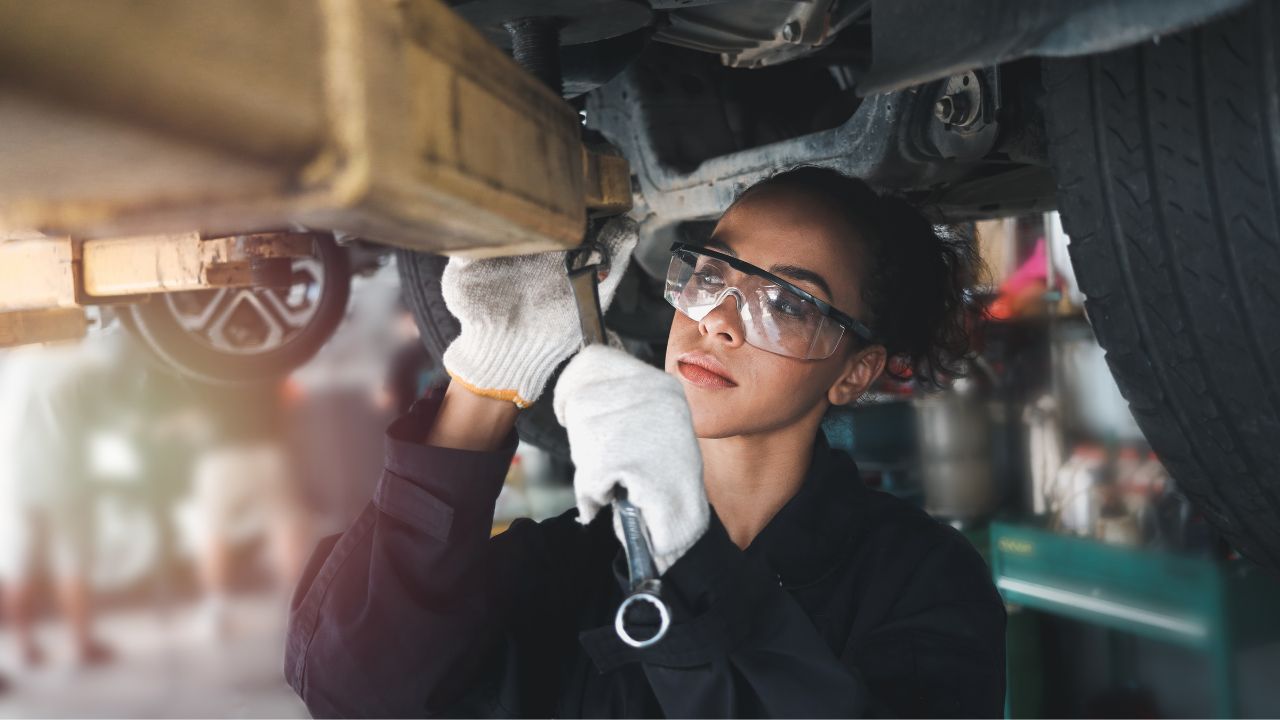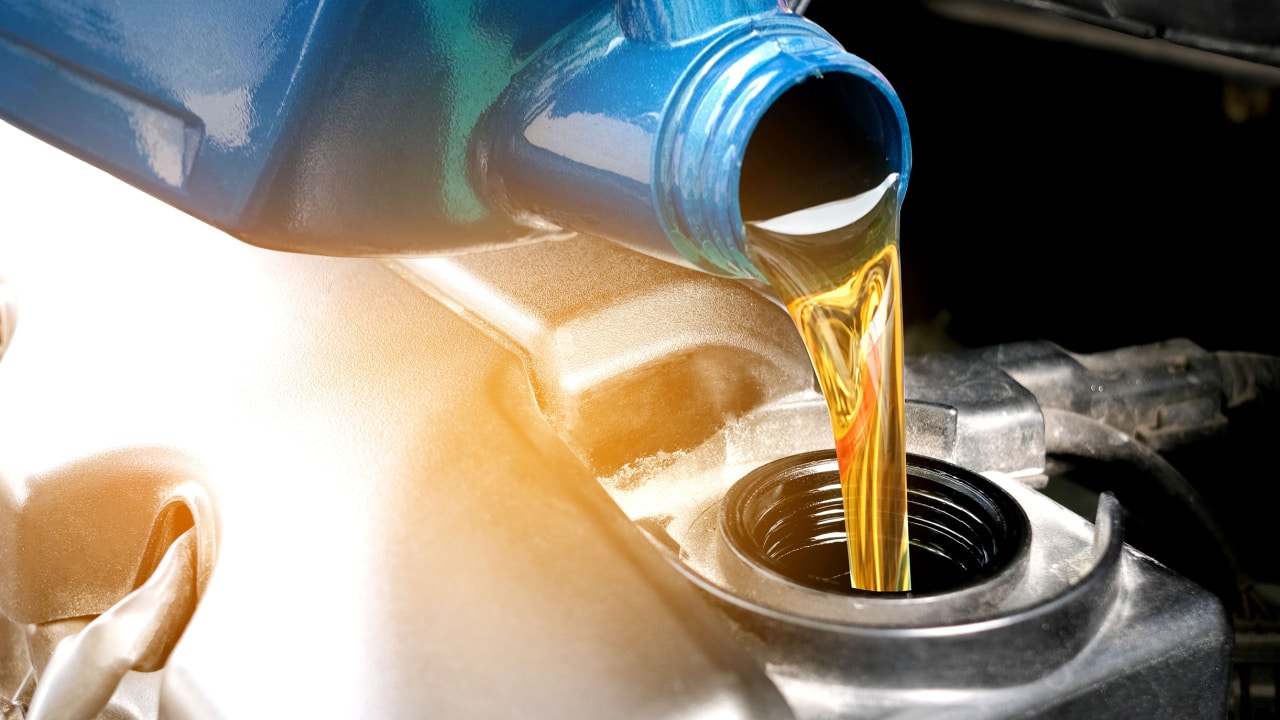21 Costly Car Repairs That Are Easily Avoidable

Did you know that the average American spends approximately $1,000 per year on car repairs and maintenance? The good news is that most of these repairs are avoidable with a little TLC and regular maintenance.
Car repairs can be a nightmare, and they not only disrupt our daily lives (no one wants to sit at the mechanic shop) but also take a toll on our wallets. From engine malfunctions to transmission failures, avoidable mishaps often strike unexpectedly and leave us with hefty bills in their wake.
Timing Belt Failure: Regular Replacement Can Prevent Catastrophic Engine Damage

Do you know that timing belt lurking in your engine? It’s a small piece with a huge job. But here’s the thing: if it snaps, it can take your engine down with it. A routine replacement might seem like a tiny task, but it’s a big deal in preventing major engine trouble.
Think of it as a bit of investment now to save you from a wallet-draining engine disaster later on.
Ignition Coil Issues: Routine Checks Can Prevent Misfires and Engine Problems

Have you ever felt your car stumble a bit like it’s having a hiccup? That might just be the ignition coil acting up. It’s crucial for a smooth engine performance. Checking it regularly can dodge those annoying misfires and keep your car humming along without any interruptions.
A little routine car check-up can help avoid those unexpected coughs and splutters on the road.
Transmission Fluid Neglect: Regular Changes Extend the Transmission’s Lifespan

Your car’s transmission works hard, making sure everything runs smoothly. Neglecting its fluid changes is like asking someone to work overtime without a water break — it’s just not sustainable without a breakdown.
Regularly changing that fluid keeps your transmission in tip-top shape, ensuring a smooth ride without any unexpected breakdowns.
Brake Pad Wear: Timely Replacements Prevent Rotor Damage and Accidents

Ever wondered about those brake pads? They’re the key to safe driving. But when they wear down, it’s not just about stopping power — it’s about protecting your whole brake system.
Swapping them out on time prevents damage to your rotors and ensures your car stops when you need it to.
Engine Oil Sludge: Regular Oil Changes Prevent Engine Clogs and Wear

Your car’s engine loves clean oil. But when that oil turns into sludge, it’s bad news.
Regular oil changes prevent this gooey mess, ensuring your engine stays clean and healthy. It’s like flushing out the junk to keep your car’s heart pumping strong, mile after mile.
Battery Corrosion: Cleaning Terminals Prevent Starting and Electrical Issues

Have you ever peeked under your car’s hood and spotted some funky stuff on the battery? That’s corrosion, and it’s trouble for your car’s electrical system. Cleaning those terminals gives your vehicle a fresh start, helps prevent starting hassles, and keeps your electricals in check.
All you need is a bit of baking soda and water on it, and you’re good to go.
Worn-out Spark Plugs: Replacing Them Avoids Engine Misfires

Your spark plugs might be small, but they play a big role. When they wear out, your engine starts to hiccup with misfires. Swapping them out avoids these issues, ensuring your engine runs smoothly without any sudden sputters.
This is an easy maintenance task that you can even do yourself — just watch a YouTube tutorial and roll up your sleeves.
Failing Water Pump: Timely Replacement Prevents Engine Overheating

Your car’s water pump quietly keeps your engine from turning into a hot meltdown. If it were to fail, your engine’s temp would quickly climb. Replacing it on time ensures that your engine can stay cool — avoiding overheating tantrums.
If your check engine light gives you a code for your water pump, that’s an issue that you should repair ASAP.
Suspension Wear: Regular Checks Prevent Uneven Tire Wear and Handling Issues

Ever noticed your car bouncing a bit too much or feeling wobbly on the road? Yeah, it’s nausea-inducing. And it could mean that your suspension is asking for a little TLC. Regular checks prevent these issues, ensuring a smoother ride and even tire wear.
Keeping your suspension in good shape will make sure it cruises down the road with grace and poise.
Catalytic Converter Failure: Proper Engine Maintenance Prevents Clogs

Ever wondered about that mysterious component in your exhaust system — the catalytic converter? It’s essential for reducing harmful emissions. But when it fails, your engine’s performance suffers.
It will likely fail inspection, depending on what state you’re in. Proper engine care prevents clogs in this crucial part, ensuring your car stays eco-friendly and runs smoothly.
EGR Valve Issues: Cleaning or Replacing It Maintains Emission Control

The EGR valve might not be the star of the show, but it’s vital for keeping your car’s emissions in check. Regular cleaning or replacement ensures it does its job, preventing harmful pollutants from sneaking into the atmosphere.
This repair may not be costly in terms of dollar bills, but it is expensive when it comes to the harm your car can cause to the environment when this part isn’t performing correctly.
Leaking Valve Cover Gasket: Early Detection Prevents Oil Leaks

Ever noticed some oily spots under your car’s hood? That could be a leaking valve cover gasket. Catching it early prevents messy oil leaks that can lead to engine damage.
When your valve cover springs a leak, it’s like a slow oil drip drama: you’ll lose oil, risk engine grime from drips on hot parts, see your car’s performance take a hit, and, if it hits the road, it’s an eco-nightmare. Fixing that leak ASAP saves your engine and keeps your ride smooth and clean.
Power Steering Fluid Leaks: Regular Checks Avoid Steering Problems

Have you ever felt your steering getting a bit stiff or making strange noises? That might be your power steering system asking for some attention. When your power steering fluid starts acting up, you might face stiff or noisy steering. Ignoring it could lead to power steering system problems, making turns a hassle and even risking safety.
Regularly checking for leaks in the power steering fluid avoids these issues, ensuring your car’s steering stays smooth and responsive. Think of it as giving your car a spa day for its steering, ensuring you steer clear of any unexpected troubles on the road.
Failed Mass Airflow Sensor: Cleaning or Replacing it Maintains Fuel Efficiency

The mass airflow sensor might not be the car part everyone talks about, but when it fails, your gas mileage takes a hit. Regularly cleaning or swapping it out ensures your car can be as fuel-efficient as possible. Better fuel efficiency means more money in your pocket.
And in this economy, that’s something we all need.
Blown Head Gasket: Regular Cooling System Maintenance Prevents Overheating

The head gasket sits between your car’s engine block and cylinder head, keeping things sealed up tight. When it blows, your engine can overheat quickly. Regular cooling system maintenance prevents this disaster, ensuring your engine stays cool and continues to perform well.
The last thing you want to deal with is a blown engine because you may as well just throw the whole car away.
Damaged Wheel Bearings: Early Detection Prevents Unsafe Driving Conditions

Ever heard a strange humming or grinding noise coming from your wheels? That might signal damaged wheel bearings. Catching this early prevents unsafe driving conditions and potential wheel disasters.
Giving your car’s wheels a regular tune-up will ensure a smooth, safe ride on the road without any unexpected wobbles.
Cracked Serpentine Belt: Timely Replacement Prevents Engine Damage

The serpentine belt is a part not many have heard of, but when it cracks, it’s trouble for your engine’s components. Replacing it on time is like giving your car’s engine a superhero cape — no engine damage, just smooth running.
This is one of those things that you should probably hire a mechanic to do. YouTube tutorials may not cut it for this — unless you’re feeling extra adventurous.
Faulty Thermostat: Replacement Maintains Proper Engine Temperature

Your car’s thermostat is like a temperature controller, making sure your engine doesn’t overheat or run too cold. When it goes haywire, there’s no telling how hot or cold your engine is, and that’s a big problem.
Swapping it out on time ensures your engine stays perfect — not too hot, not too hard… just right.
Worn-out Shocks/Struts: Early Replacement Prevents Handling Issues

Have you ever felt your car bouncing more than it should or experienced a rough ride? My first car did this, and I thought it was normal. Turns out, it was worn-out shocks and struts. Replacing them early on prevents handling issues and ensures a smoother, safer drive.
After my dad replaced them, you would have thought you were in a different car — a total game changer.
Failing Fuel Pump: Timely Replacement Avoids Fuel Delivery Problems

If you like it when your engine starts, then you’re going to need your fuel pump to work.
When it starts failing, your engine might sputter or even stall. Replacing it in time ensures your engine gets the right amount of fuel, keeping your car cruising smoothly without any unexpected roadside stops.
Excessive Exhaust System Corrosion: Regular Checks and Maintenance Prevent Leaks and Emissions Issues

Ever noticed rusty patches or strange noises from your exhaust? That could signal excessive corrosion. Regular checks and maintenance prevent leaks and emissions issues, ensuring your car stays eco-friendly and runs quietly.
This will help ensure it breathes clean exhaust fumes on the road.





